Definition Of Adjective Phrase
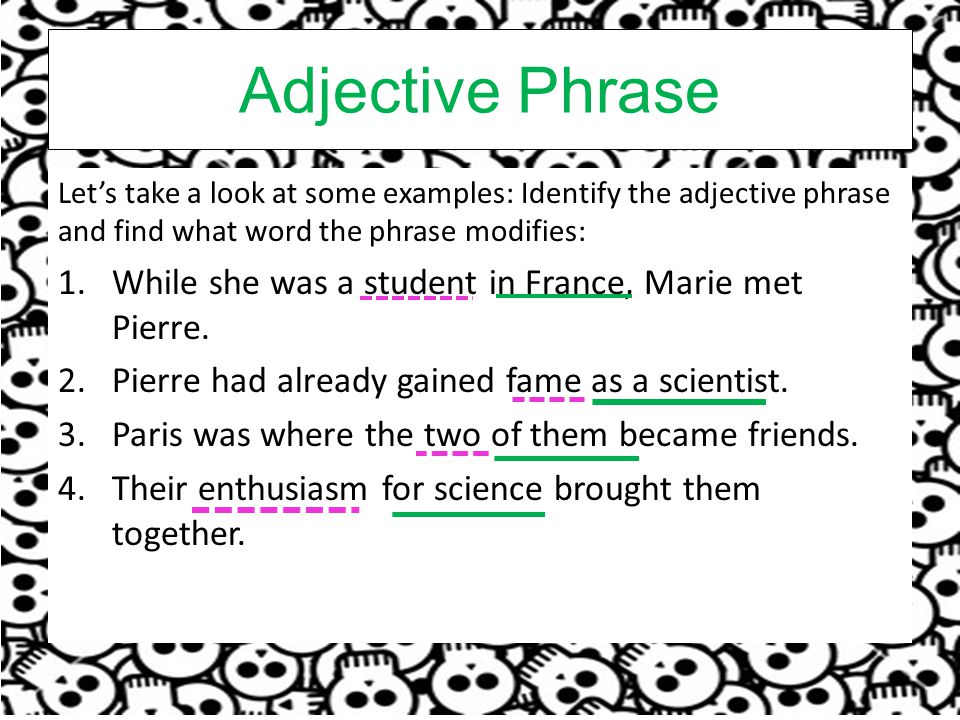
In english grammar an adjective phrase is a group of words that functions as an adjective in a sentence.
Definition of adjective phrase. The adjective blue heads the adjective phrase. The adjective in an adjective phrase can appear at the start end or in the middle of the phrase. This adjective phrase describes the noun eyes. Definition of adjective entry 1 of 2.
Pertaining to or functioning as an adjective. Easy examples of adjective phrases in each example below the adjective phrase is shaded and the head adjective is bold. An adjective phrase or adjectival phrase is a group of words based on an adjective such as very nice or interested in football an adjective phrase can also consist simply of an adjective. Relative pronouns are used in the adjective clause.
If the relative pronoun and the verb are skipped from the adjective clause it is transformed into an adjective phrase. The adjective phrase can be placed before or after the noun or pronoun in the sentence. The adjective use of a noun. An adjective phrase is a group of words headed by an adjective that describes a noun or a pronoun.
Of dye colors requiring a mordant or the like to render them permanent opposed to substantive. An adjective phrase or adjectival phrase is a group of words based on an adjective such as very nice or interested in football an adjective phrase can also consist simply of an adjective. An adjective phrase or an adjectival phrase is more than a group of words with an adjective in it. It s actually a group of words that describe a noun or pronoun in a sentence thus functioning as an adjective.
Adjective phrases can be derived from adjective clauses. Also known as an adjectival phrase. She had extremely blue eyes. An adjective phrase is a group of words that describe a noun or pronoun in a sentence.
Adjective phrases modify nouns. Adjective phrase definition a group of words including an adjective and its complements or modifiers that functions as an adjective as too openly critical in his latest article is too openly critical of the administration. An adjective headword may be accompanied by modifiers determiners and or qualifiers all of which are called dependents. Concerning methods of enforcement of legal rights as pleading and practice opposed to substantive.
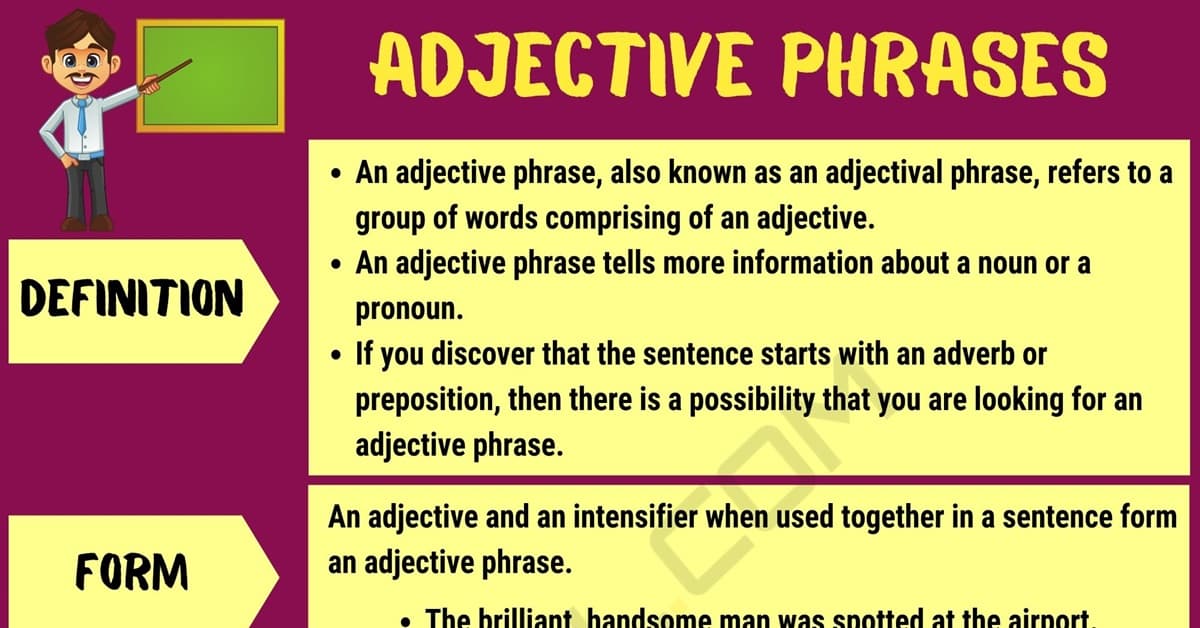





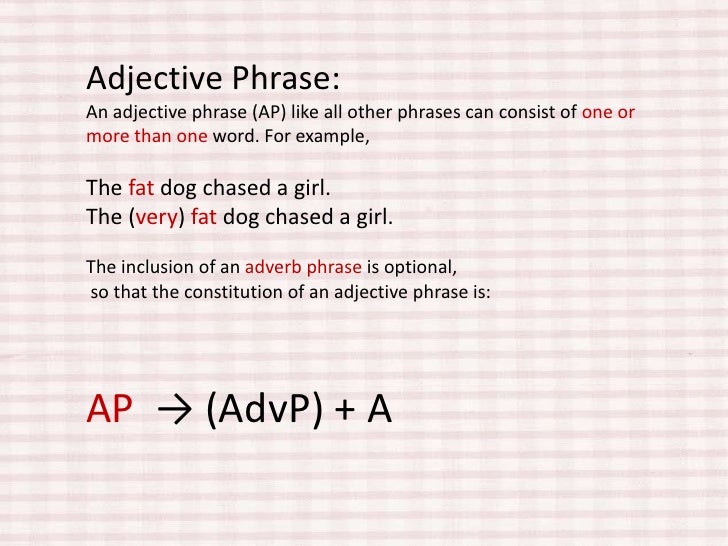

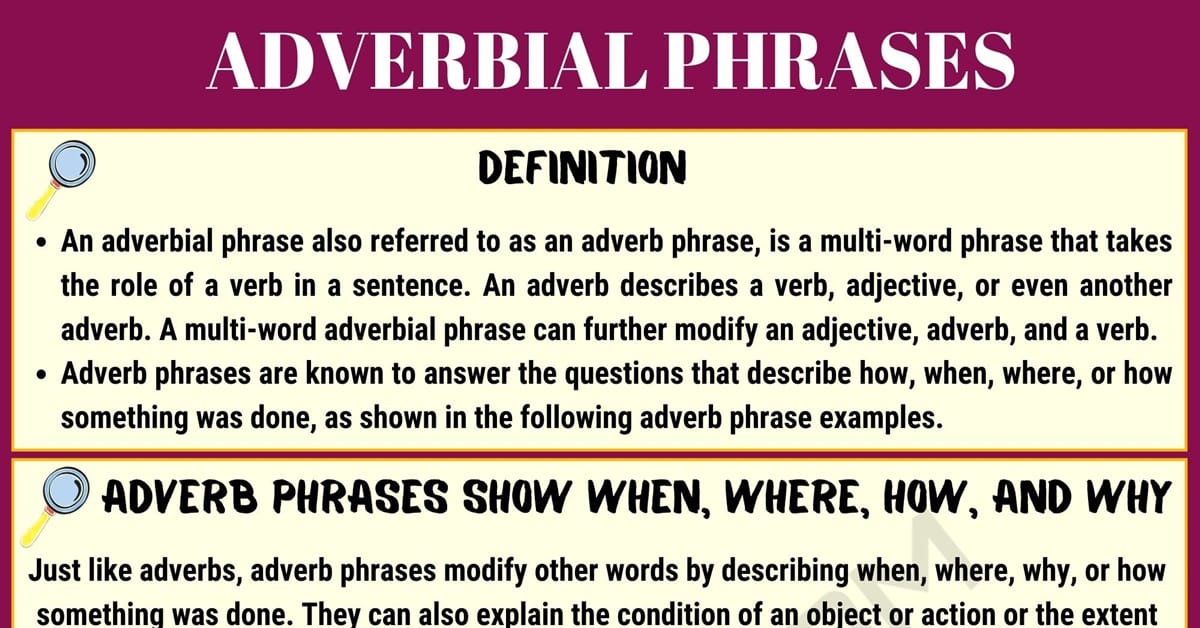

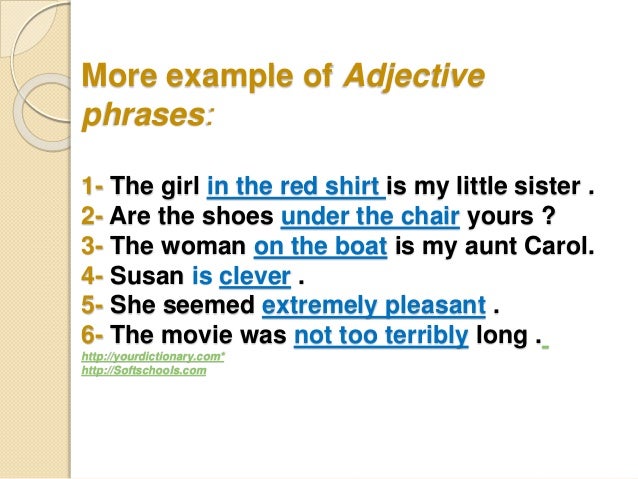
/adjective-group-word-653191246-5b005f24875db900369244b4.jpg)

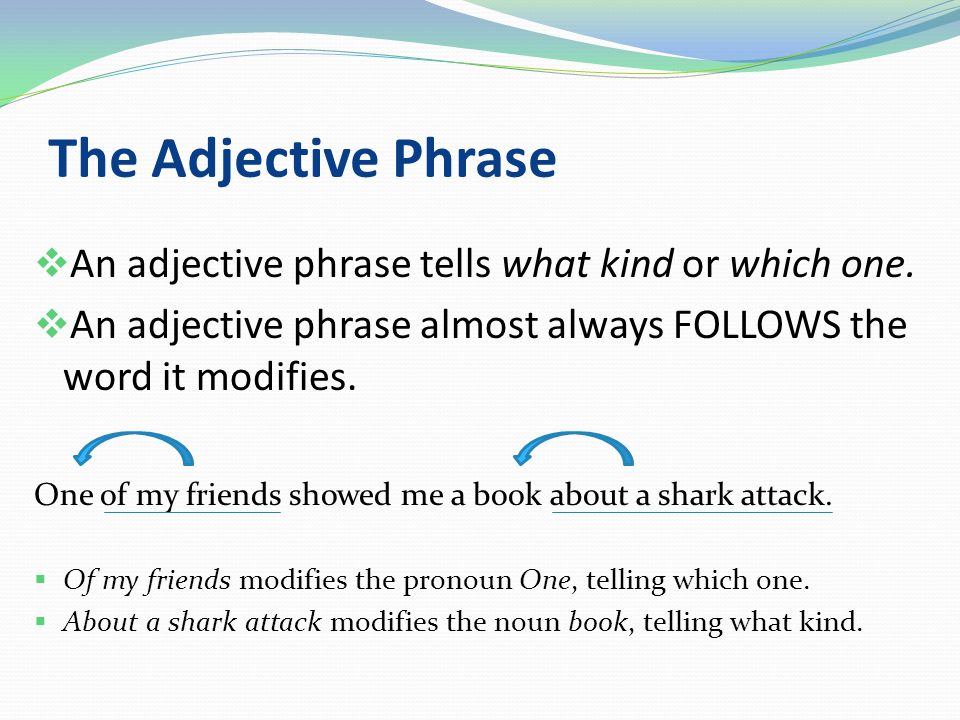

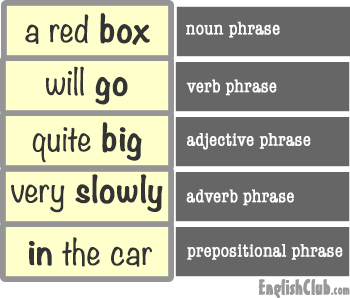

/phrase-grammar-1691625_v4-5b76ef22c9e77c0025525c1c.png)
